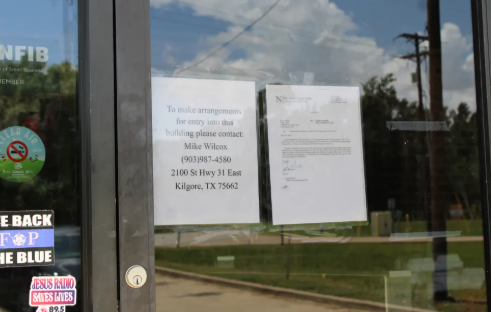In government by the people, what if the people aren’t who they say they are?
Published 1:25 pm Tuesday, October 22, 2019
Public comment processes are supposed to promote government of the people, by the people and for the people. So what happens when the people aren’t who they say they are? BuzzFeed reports that political operatives are engaging in campaigns of impersonation to co-opt opportunities for everyday Americans to tell officials and lawmakers what they think of pending policies.
The investigation is the latest development in a long-simmering story about the Federal Communications Commission’s decision to scrap net neutrality strictures. The agency drew 22 million submissions on the subject, a sky-high yield that looked on the surface like democracy at its digitally enhanced best. The only problem? Many of those comments came from addresses that did not actually exist. Others were supposedly submitted by Mickey Mouse and more of pop culture’s finest. Most startling, others still seemed to come from beyond the grave — attached to names of the deceased.
Nearly 8 million comments in support of net neutrality appeared to have been created at FakeMailGenerator.com. Yet the most sophisticated campaign, and the most insidious, was by all indications carried out by at least two strategy firms working on behalf of a broadband industry group. These firms misappropriated names and other personal information to upload a tsunami of comments decrying the now-defunct Obama-era strictures, and they exploited data stolen from tens of millions of Americans in a huge 2016 hack to do it.
The tactics aren’t limited to the federal level. The same firms provoked suspicion in Texas and South Carolina when legislators found themselves inundated with formulaic citizen feedback. In Texas, a lawmaker received a constituent message ostensibly from his predecessor who, when contacted, said he had never sent a thing. In South Carolina, lawmakers could not find a single constituent who had actually sent the correspondence in question. And that’s only the abuse we know about.
The story is a classic case of good intentions and new technology combining to create trouble. The public comment process dates from 1946 — long, long before the Internet era. Agencies realized it wasn’t built for web-wide engagement, and they tried to catch up. But regulations are lacking from the federal level to prevent the malicious from misusing the system. Fixing that might involve narrow legal updates letting investigators go after comments entered en masse using stolen identities. It will also involve technical ones to make data more transparent and mandate quality control.
The situation today, though, is untenable. Governments pay attention to comments despite their corruption or ignore them because they have become too polluted to trust. Either way, real citizens who cared enough to speak up are disregarded. “It poisoned the well,” a South Carolinian representative told BuzzFeed. “Now when you get an email . . . you think, ‘Is this fake advocacy or someone who really needs something?’”
— The Washington Post






